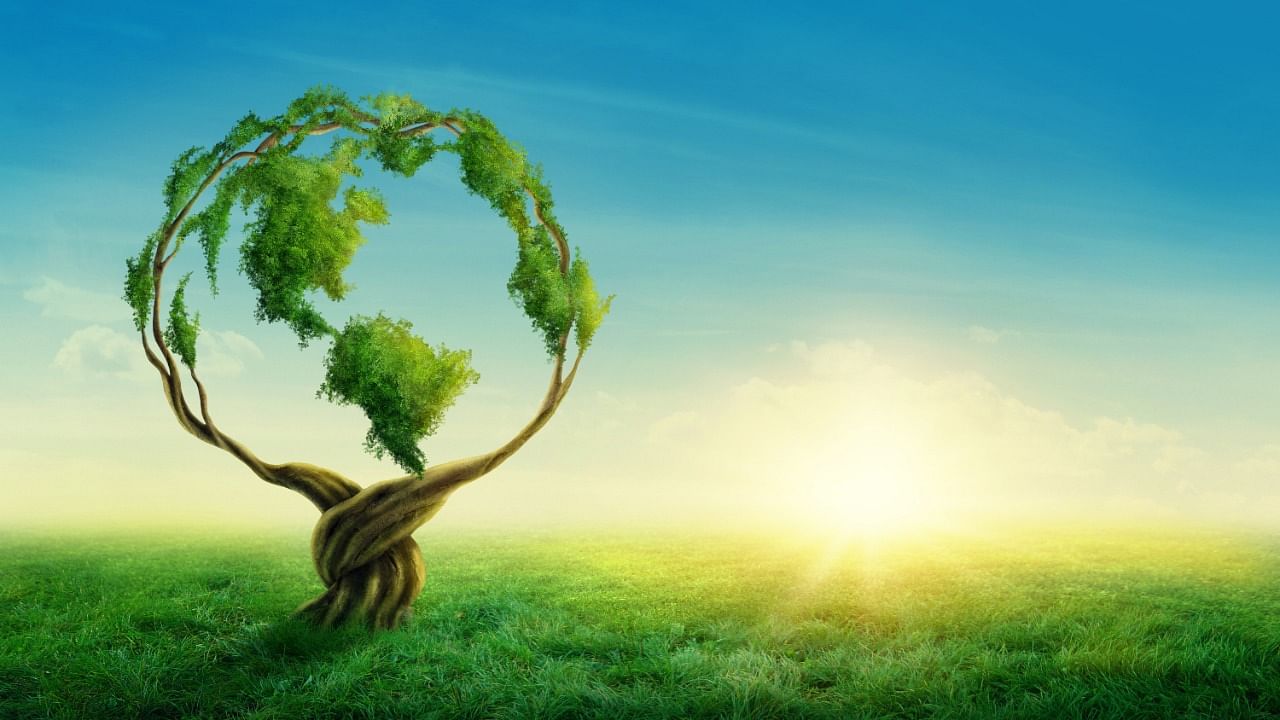
The world seems to be in trouble not just because what the Coronavirus pandemic is doing but the conjecture of whether there will be peace and stability for the people who will live on this planet safely in future. After the major breakthroughs like the industrial revolution, the world wars and such other major virus-carrying pandemics like the smallpox, the plague and other deadly scars, the world is silently going through the metamorphosis such as the ruthless elimination of the ecosystems that are tearing the globe apart in several ways that the mankind hasn’t yet woken up to learn.
It’s indeed very painful and threatening to find how the world, or our earth, is being treated and handled in a vicious manner by the so-called developed nations to increase their status as economic powers of the world. The economic status is good to live a comfortable life but at what cost to the environment? Are we aware as to how have we caused the ruin and the detriment to the fragile systems and space that gave us life, hope and sustenance on this planet?
Long ago but not very long indeed, we lived in a world that was slow-paced and ecologically healthy and fertile. We understood the value of the soil, the grass, the bush, the trees, the lakes, the bees and the birds and the beautiful rainfalls. The children painted the fascinating hills, mountains, the moving clouds, the swaying trees, the ripples of water on the rivers and the great waves of the oceans. Van Gogh wrote to his brother who, in Paris, traded in the former’s paintings that he would live in the village and die painting the objects of the nature.
If you look at Van Gogh’s paintings and portraits in the Amsterdam museum, you would realise what he meant by it. India, with its great environmental assets and features where the Ganga, the Cauvery and Krishna flow and some of the other fascinating streams and waterfalls trundle, had equally impressive and gorgeous panoramic sites. The world was different and looked so beautiful wherever you went. We walked on the soil, rolled on the grass and plucked berries from the bushes and climbed the trees to play and have fruits. What a time of life it was compared to the cubicles that we see where people are confined eternally without fresh air.
There were no cement concrete structures and blocks, there were no rising towers overlooking tiny specs of moving vehicles and elsewhere series of concrete apartments and those shopping malls where people keep moving without looking at one another or even acknowledging that they are human beings like themselves. In the process of creating a modern world, we have created complex systems of living with numerous designs for working, travelling, walking, eating and resting which indeed seem extraordinary but are extraneous to natural life. These subsidiaries or technologies are a tremendous drain on the planet as the volume of resources to produce the energy and raw material to create and run the modern world are humongous.
Presently, the world, especially the US, UK, Russia, China and India together spend more than $700 trillion on their military. Weapons and ammunitions, ships, submarines, jets, bombers and tanks that you see which roll on the parade days of these nations, tell us the amount of money, material, effort and knowledge invested on these arms and equipment that bring a proud sense of joy and proverbial moment of glory.
Crushed mercilessly
But in reality, what’s important is the energy that these military credentials deploy on engaging these arsenals to demonstrate how the ecosystems are trampled and eliminated by producing these weapons and how the environment which has produced this marvellous planet is crushed mercilessly forever. Such enormous money is spent at a time when a majority of the people are finding a shortage of water, food and housing facilities. How could this happen when the world is becoming more aware and discerning in matters of creating a better life for people.
When the United Nations could take the responsibility of allaying fears of the emerging conflicts between the nations and bringing ceasefire after conflicts and skirmishes, why don’t they sit and think as to how they could save this beautiful world by banning the production of arms and ammunitions by bringing a universal restriction and limit the creation of the military power of such countries? If the intention of the rich nations is to promote their economic power by producing the military hardware and selling it to others, what’s then the grace and equity of democracy?
Time has come when we are facing grave dangers of existence with pandemics like Coronaviruses obliterating life on earth and pitifully the human race is in the oblivion of the implications of their actions on the environment. The world is in real trouble with the rivers like the Euphrates which once fed millions of people with its plentiful fish and the Nile shrinking and not reaching and irrigating the lands in five countries of the Mediterranean. The Durum wheat is falling in its yield while the Italians are grieving the decline in their favourite dish of pasta.
The Europeans are in eternal fear of the failure of agriculture and fisheries as the ice in the polar Arctic is melting fast due to global warming. Latin America going through the worst economic and environmental crises, topped with the Covid- 19, India should be taking a close look at what’s happening to the world and look through its own prism of a pace of development that doesn’t speak only of a material civilisation but growth in balance with its capacity of natural resources and its spiritual intelligence and effort to keep the diverse population in peace and happiness, the saga laid by many a saint and philosopher the world respected.
(The writer is an environmental activist)